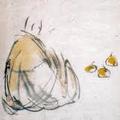LAO-TSEU : Tao Te King, Livre 1: chapitre 3
LAO-TSEU : Tao Te King, Buch 1: Kapitel 3
LAO-TSEU: Tao Te King, Book 1: chapter 3
LAO-TSEU: Tao Te King, Libro 1: capítulo 3
LAO-TSEU:『タオ・テ・キング』第1巻:第3章
LAO-TSEU: Tao Te King, Księga 1: rozdział 3
老子:《道德經》,第一冊:第三章
En n'exaltant pas les sages, on empêche le peuple de se disputer.
|not exalting|||wise||prevents|||||dispute
|exaltando|||sábios||impede|||||disputar
||||智者|||||||争吵
|nicht exaltierend|||||verhindert|||||
|高揚させる|||||||人々|||
Al|no exaltar|||sabios||impide||pueblo|||discutir
By not extolling the wise, the people are prevented from arguing.
با تجلیل نکردن عاقل، مردم را از مجادله باز می داریم.
Не возвеличивая мудрых, мы не даем людям спорить.
Bilgeyi yüceltmeyerek insanların tartışmasını engelleriz.
不崇尚聖賢,会阻止人民互相爭吵。
En ne prisant pas les biens d'une acquisition difficile, on empêche le peuple de se livrer au vol.
||valuing|||goods|||||prevents|||||deliver||theft
||prisar|||||||||||||entregar-se||
|||||||獲得||||||||||
||prisant|||||||||||||||
||重視して|||財産||取得|難しい||妨げる|||||自らを委ねる||
||apreciando|||||||||||||entregarse||
By not taking the goods of a difficult acquisition, the people are prevented from committing theft.
با ارزش ندادن به کالاهای یک خرید دشوار، از دزدی مردم جلوگیری می کنیم.
Elde edilmesi zor olan malları almayarak, insanların hırsızlık yapmasını önlüyoruz.
不重視艱難得來的財物,會阻止人民進行盜竊。
En ne regardant point des objets propres à exciter des désirs, on empêche que le cœur du peuple ne se trouble 1.
||||||適合的||激发||||||||||||
||||||||||||||||||||trouble
「人々の心が乱れないように」|ない|見る||不定冠詞||||刺激する||欲望||防ぐ||||||||
||||||próprios||||||||||||||trouble
||||||||excitar||||impide|||corazón|||||se inquiete
By not looking at things that excite desires, the heart of the people is prevented from being disturbed.
Arzu uyandırması muhtemel nesnelere bakmayarak insanların yüreklerinin rahatsız olmasını önleriz1.
不觀看那些容易激起慾望的事物,會阻止人民的心靈不受到干擾。
C'est pourquoi, lorsque le saint homme gouverne, il vide son cœur, il remplit son ventre (son intérieur),
||||||治理||||||||||內部
||||saint||||||||fills||||
||||||治る||||||満たす||||
||||||||vacía||||llena||||
||||||||vazia||||enche||||
That is why, when the holy man governs, he empties his heart, he fills his belly (his interior),
這就是為什麼,當聖人統治時,他會清空自己的心,充滿自己的肚子(內在),
il affaiblit sa volonté, et il fortifie ses os.
|weakens|||||fortifies||bones
|afirma|||||||ossos
|削弱|||||||
|schwächt|||||||
||||||強化する||
|debilita|||||fortalece||huesos
he weakens his will, and strengthens his bones.
他削弱自己的意志,並強化自己的骨頭。
Il s'étudie constamment à rendre le peuple ignorant et exempt de désirs.
|自我研究||||||||||
|||||||ignorant||||
|自分を勉強させている|常に|||||無知||免れた||欲望
|se esfuerza por||||||||||
He is constantly studying to make the people ignorant and free from desires.
他不斷研究使人民無知和免於慾望。
Il fait en sorte que ceux qui ont du savoir n'osent pas agir.
||||||||||don't dare||
||||||||||おそれる||
||||||||||no se atreven||actuar
He makes sure that those who have knowledge do not dare to act.
他確保那些有知識的人不敢行動。
Il pratique le non-agir, et alors il n'y a rien qui ne soit bien gouverné.
|||||||||||||||治理
|||||||||||||||governed
|||||||||||||||統治されている
||||no actuar|||||||||||
He practices non-action, and then there is nothing that is not well governed.
他實踐無為,於是沒有什麼不被良好治理。
Notes du chapitre 3
Notes||
Notes from chapter 3
第三章筆記
1\\.
1 \\\\.
Le cœur de l'homme est naturellement calme.
|||||自然地|
||||||calm
The heart of man is naturally calm.
Lorsqu'il se trouble et perd son état habituel, c'est qu'il est ému par la vue des choses propres à exciter les désirs, on empêche que le cœur ne se trouble.
當它||||失去|||||||||||||||||||||||||
||||loses|||||||moved||||||clean||||||||||||
||動揺する|||||||||||||||||興奮させる||欲望||防ぐ||||||動揺する
||||pierde|||||||emocionado|||vista de cosas|||||||||impide||||||
When he is troubled and loses his habitual state, it is because he is moved by the sight of things calculated to excite the desires, it prevents the heart from being disturbed.
當他感到不安,失去平常的狀態時,是因為他被激發欲望之事物的景象所感動,我們可以阻止心靈的困擾。
Dans les passage précédents, les mots « ne pas estimer », pouchang , « ne pas priser », pou–koueï , montrent que les mots « ne pas regarder »., pou-kien, doivent se rapporter au roi.
|||之前的||||||不重视|||重視||不重视||||||||||必須||與相關||
|||||||||pouchang|||schätzen||koueï||||||||||||||
||pass||||||estimate|refrain|||price|can|or care||||||||to|do not consider|||relate||
前の||||||||評価する|pouchang|||評価する|ポ|考え|示している|||||||プー|キエン|||関係する||王
||||||||no valorar|no valorar|||no valorar|piojo|no estimar|||||||||no mirar|||referirse a||
In the preceding passages, the words "do not esteem", pouchang, "do not sniff", pou-kwei, show that the words "do not look", po-kien, must relate to the king.
在前面的段落中,詞語「不重視」,pouchang,「不珍惜」,pou–koueï,顯示「不看」,pou-kien,必須與國王相關。

